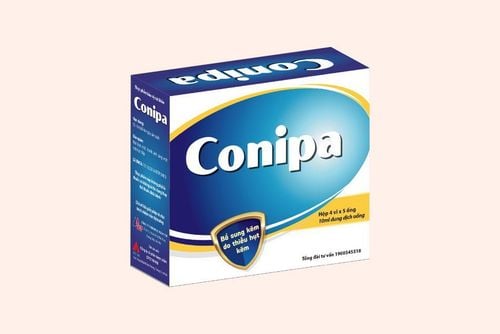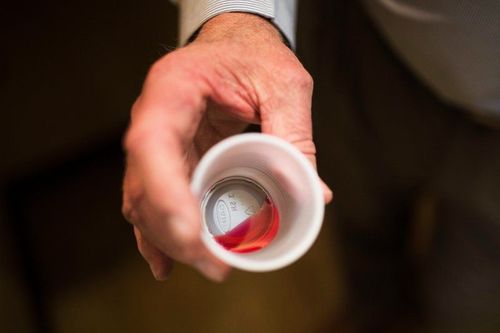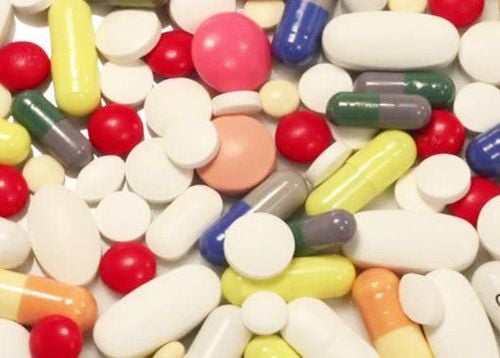This is an automatically translated article.
If you drink fresh milk and have diarrhea, in addition to the quality of the milk, the remaining cause may be due to the body. Lactose intolerance and milk allergy can be the main culprits for diarrhea. These two disorders sound similar but differ in their pathogenesis and both cause diarrhea following milk consumption.
1. Causes of diarrhea caused by drinking fresh milk
1.1. Drinking raw milk with diarrhea due to lactose intolerance Lactose is a double sugar that occurs a lot in milk (both breast milk and cow's milk). When lactose enters the small intestine, it is broken down by lactase into two simple sugars (galactose and glucose) for absorption into the body. However, if for some reason, the lactose and lactase enzymes are not balanced (the amount of lactose exceeds the digestibility threshold of lactase), it will lead to lactose malabsorption, causing symptoms such as: abdominal pain, bloating, and loose bowel movements (diarrhea). These three symptoms are called lactose intolerance.
The above unpleasant symptoms usually occur from 15 minutes to several hours after consuming dairy products containing lactose (fresh milk, yogurt, canned milk...). Depending on the amount of lactose put into the body and the user's physical condition, the symptoms of abdominal pain and diarrhea will take place with different degrees.
Although this condition is not considered life-threatening, if not properly treated, it can cause prolonged diarrhea, malnutrition, micronutrient deficiencies in young children, and susceptibility to infections due to reduced resistance. .
1.2. Milk allergy Milk allergy is a condition that occurs when the body reacts to a protein found in milk (such as whey or casein ) and causes diarrhea. Milk of any mammal can cause this allergy, but cow's milk is the most common cause.
Reactions such as difficulty breathing, vomiting, hives... will appear between 5 minutes and 3 hours after eating or consuming foods containing milk.
In addition to diarrhea, other symptoms may appear including: Abdominal pain, bloody stools, cough, runny nose, skin rash...
2. How to distinguish lactose intolerance and milk allergy?
If your body is lactose intolerant, it means that you have difficulty digesting the sugar found in milk. This is a problem related to the digestive system. However, milk allergy is associated with immune activity. Specifically, in this case the IgE antibodies (immunoglobulins) mistakenly recognize the proteins in the milk as foreign and seek to remove them from the body, triggering an immune response.
Lactose intolerance and milk allergy sound similar but are actually so different that people should not self-diagnose. Drinking raw milk with diarrhea, eating yogurt with diarrhea are both symptoms of both disorders and only a doctor can determine which disease you are suffering from.
3. Diarrhea should drink milk? Prevention of diarrhea when consuming dairy products
If you drink raw milk with diarrhea due to milk allergy, the only way is to abstain from milk in your daily diet. You can consult your doctor to determine which dairy products to stay away from.
In case you accidentally eat something containing milk, always have an antihistamine on hand to take whenever needed to prevent an allergic reaction.
In the case of a severe milk allergy, you may experience swelling of the throat and airways, causing acute difficulty breathing, anaphylactic shock. For timely emergency, you need to bring the medicine prescribed by the doctor or go to the nearest medical facility for timely intervention.
For children who drink raw milk with diarrhea due to lactose intolerance, many parents hold the notion that milk and dairy products should be eliminated from their child's diet. This is an incorrect view, because it depends on the milk product the baby is using. Abruptly stopping milk can cause infants and young children to become malnourished and underdeveloped. Therefore, only abstain from milk for older children if they drink fresh milk with diarrhea, otherwise, refer to lactose-free milk (lactose-free milk) for young children to ensure nutrients. Lactose-free milk lines are specially formulated to eliminate or contain only a small amount of lactose, making it friendly to the baby's digestive system.
Currently, Vinmec Health System provides a full range of nutritional counseling and treatment services for adults and children of all ages. If you are having problems with nutrition and digestive system disorders, you should go to the hospitals of the system for direct examination. Here, the doctors will conduct the necessary tests, analyze the micronutrients and give the appropriate nutritional and treatment regimen for each patient, including those who unfortunately drink raw milk with diarrhea.
Follow Vinmec International General Hospital website to get more health, nutrition and beauty information to protect the health of yourself and your loved ones in your family.
Please dial HOTLINE for more information or register for an appointment HERE. Download MyVinmec app to make appointments faster and to manage your bookings easily.













